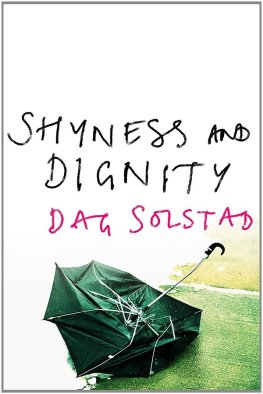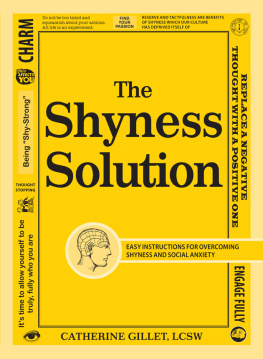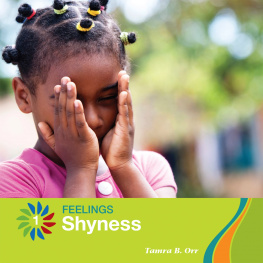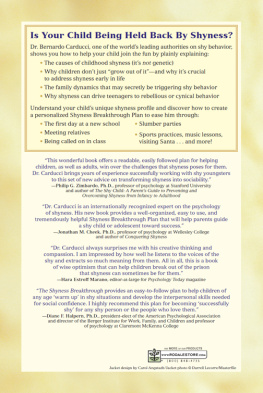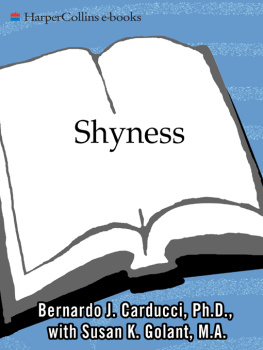Dag Solstad
Shyness And Dignity
A senior-school teacher in his fifties begins his day as usual, picking up his briefcase and some headache pills and after a cordial goodbye to his wife, leaving for work as he has done every morning for the past twenty-five years. However, this autumn morning is to be the start of no ordinary day. Though familiar with his students hostile attitude towards both his lectures and himself, today he feels their enmity touch deeper than ever before and, after a passionate lecture on Ibsens The Wild Duck, it precipitates a crisis.
He reaches a decision that forces an assessment of his choice of life, of his marriage and ultimately of his values and worth in modern society. He is, to his own mind, plagued by the fact I am a socially aware individual who no longer has anything to say.
Shyness and Dignity is a universal story of a man lost in a world that no longer recognises either him or his talent. Nabokov and Bernhard are echoed in this tour de force from Norways leading contemporary writer.
Translated from the Norwegian by Sverre Lyngstad.
HE WAS A rather sottish senior master in his fifties, with a wife who had spread out a bit too much and with whom he had breakfast every morning. This autumn day, too, a Monday in October, not yet knowing as he sat at the breakfast table with a light headache that it would be the decisive day in his life. Like every day, he had been careful to put on a sparkling white shirt, which alleviated the distaste he could not help feeling at having to live in such a time and under such conditions. He finished his breakfast in silence and looked out of the window, on to Jacob Aalls gate, as he had done innumerable times throughout the years. A street in Oslo, Norways capital, where he lived and worked. It was a grey, oppressive morning, the sky was leaden, with scattered clouds drifting across it like black veils. I wouldnt be surprised if it rained, he thought, picking up his collapsible umbrella. He stuck it in his briefcase, together with his headache pills and some books. He bid a markedly cordial goodbye to his wife, in a tone that seemed genuine and sharply contrasted with his irritable, and her rather drawn, expression. But this is how it was every morning when he composed himself, with great difficulty, for this cordial take care of yourself, a gesture to this wife he had for years been living so close to and with whom he consequently had to feel a deep solidarity, and although he could now, on the whole, feel only remnants of this solidarity, it was essential for him to let her know every morning, by means of this cheerful and simple take care of yourself, that in his innermost heart he thought that nothing had changed between them, and while they both knew that it did not reflect the actual situation, he felt obliged to force himself, for the sake of propriety, to rise to a level high enough to make this gesture possible, not least because he then received a goodbye in return in the same simple and genuine tone, which had a soothing effect on his uneasiness and was indispensable to him. He walked to school, Fagerborg Secondary School, situated only seven or eight minutes from his home. His head felt heavy and he was a bit on edge, after drinking beer and aquavit the evening before, a little too much aquavit, about the right amount of beer, he thought. A little too much aquavit, which was now pressing on his forehead, like a chain. When he reached the school he went straight to the staff room, put away his briefcase, took out his books, swallowed a headache pill, said a brief but unaffected good morning to his colleagues, who had already taught one period, and went to his class.
He entered the classroom, closed the door behind him, and sat down behind the teachers desk on the podium by the blackboard, which covered most of one long wall. Blackboard and chalk. Sponge. Twenty-five years in the service of the school. As he stepped into the classroom, the pupils hastily sat down at their desks. In front of him, twenty-nine young men and women about the age of eighteen who looked at him and returned his greeting. They removed their earpieces and put them in their pockets. He asked them to take out their school edition of The Wild Duck. He was once more struck by their hostile attitude towards him. But it could not be helped, he had a task to perform and was going through with it. It was from them as a group that he sensed the massive dislike sent forth by their bodies. Individually they could be very pleasant, but en bloc, positioned like now, at their desks, they constituted a structural enmity, directed at him and all that he stood for. Although they did as he told them. They took out their school edition of The Wild Duck without grumbling and placed it on their desks before them. He himself sat with an equivalent copy in front of him. The Wild Duck by Henrik Ibsen. This remarkable drama that Henrik Ibsen wrote at the age of fifty-six, in 1884. The class had been taken up with it for more than a month, and even so they were only in the middle of Act IV that was doing things in style, he thought. A sleepy Monday morning. Norwegian class, actually a double period with a group of seniors, at Fagerborg Secondary School. Directly outside the windows, that grey, oppressive day. He was sitting behind his lectern, as he called it. The pupils with their noses and eyes turned towards the book. Some were slumped over rather than seated at their desks, which annoyed him, but he did not bother to take notice of it. He was speaking, holding forth. In the middle of Act IV. Where Mrs Srbye appears in Ekdals home and announces that she is going to marry Werle, the merchant, and where Ekdals lodger Dr Relling is present, and he read (himself, instead of asking one of his pupils to do it, which he did at times for the sake of appearances, but he preferred to do it himself): Relling (with a slight tremor in his voice): This cant possibly be true? Mrs Srbye: Yes, my dear Relling, indeed it is. As he was reading he felt an unendurable excitement, because all at once he thought he was on the track of something to which he had not previously paid any attention when trying to understand The Wild Duck.
For twenty-five years he had gone through this drama by Henrik Ibsen with eighteen-year-olds in their last year of gymnasium (or secondary school), and he had always had problems with Dr Relling. He had not fully grasped what he was doing in the play. He had seen that his function was to proclaim elementary, unvarnished truths about the other characters in the play, well, actually about the entire play. He had seen him as a kind of mouthpiece for Ibsen and had been unable to grasp why that was necessary. Indeed, he had been of the opinion that the figure of Dr Relling weakened the play. What did Henrik Ibsen need a mouthpiece for? Did not the play speak for itself? he had thought. But here, here there was something. Henrik Ibsen lays his hand on his minor character Dr Relling and, within parentheses, makes him speak with a slight tremor in his voice as he asks Mrs Srbye if it is really true that she will marry Werle, the powerful merchant. For a moment, Henrik Ibsen pushes Relling into the drama he otherwise exclusively comments upon with his sarcasms. There he is, caught in his own bitter fate as a perpetual, unsuccessful admirer of Mrs Srbye, throughout her two marriages, first to Dr Srbye, now to Werle, and for a brief moment it is his fate, and nothing else, that is frozen into immobility on the stage. The moment of the minor figure. Both before and after this he remains the same, the man who reels off those smart lines, one of which has acquired an immortal status in Norwegian literature: If you take the life-lie away from an average person, you take away his happiness as well.

